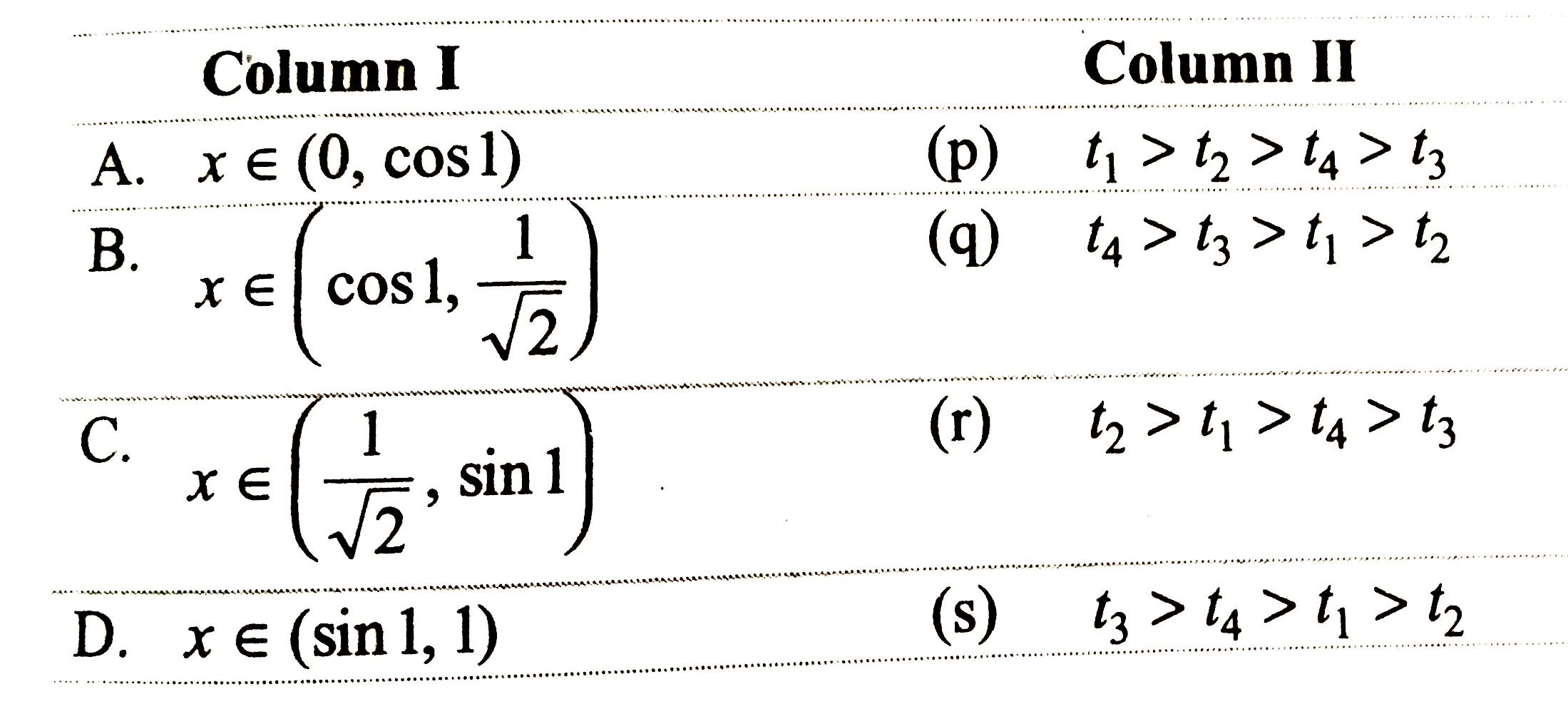If f(x)=sin−1(cosec(sin−1x))+cos−1(sec(cos−1x)), then f(x) takes
exactly two values
one value
undefined
infinite values
The correct Answer is:B
To solve the problem f(x)=sin−1(csc(sin−1(x)))+cos−1(sec(cos−1(x))), we will simplify each term step by step.
Step 1: Simplifying sin−1(csc(sin−1(x)))
Let y=sin−1(x). Then, by definition, we have:
sin(y)=x
The cosecant function is the reciprocal of the sine function:
csc(y)=1sin(y)=1x
Now, we need to find sin−1(csc(y)):
sin−1(csc(y))=sin−1(1x)
Step 2: Simplifying cos−1(sec(cos−1(x)))
Let z=cos−1(x). Then, by definition, we have:
cos(z)=x
The secant function is the reciprocal of the cosine function:
sec(z)=1cos(z)=1x
Now, we need to find cos−1(sec(z)):
cos−1(sec(z))=cos−1(1x)
Step 3: Combining the Results
Now we can combine the results from Step 1 and Step 2:
f(x)=sin−1(1x)+cos−1(1x)
Step 4: Using the Identity
We know that:
sin−1(a)+cos−1(a)=π2for |a|≤1
Here, a=1x. Therefore, we need to ensure that |x|≥1 for 1x to be valid in the domain of the inverse sine and cosine functions.
Conclusion
Thus, we conclude:
f(x)=π2if |x|≥1
sin(y)=x
The cosecant function is the reciprocal of the sine function:
csc(y)=1sin(y)=1x
Now, we need to find sin−1(csc(y)):
sin−1(csc(y))=sin−1(1x)
cos(z)=x
The secant function is the reciprocal of the cosine function:
sec(z)=1cos(z)=1x
Now, we need to find cos−1(sec(z)):
cos−1(sec(z))=cos−1(1x)
f(x)=sin−1(1x)+cos−1(1x)
sin−1(a)+cos−1(a)=π2for |a|≤1
Here, a=1x. Therefore, we need to ensure that |x|≥1 for 1x to be valid in the domain of the inverse sine and cosine functions.
f(x)=π2if |x|≥1
Similar Questions
Find the value of sin−1(cos(sin−1x))+cos−1(sin(cos−1x))
View SolutionFind the value of sin−1(cos(sin−1x))+cos−1(sin(cos−1x))
View SolutionRange of f(x)=sin−1x+sec−1x is
View SolutionIf x∈(0,1) and f(x)=sec{tan−1(sin(cos−1x)+cos(sin−1x)cos(cos−1x)+sin(sin−1x))}, then 10∑r=2f(1r) is _______ .
View SolutionIf f(x)={s∈(cos−1x)+cos(sin−1x),x≤0s∈(cos−1x)−cos(sin−1x,x>0) . Then at x=0 f(x) is continuous and differentiable f(x) is continuous but not differentiable f(x) not continuous but differentiable f(x) is neither continuous nor differentiable
View SolutionIf f(x)=sin−1(sinx),g(x)=cos−1(cosx) and h(x)=cot−1(cotx), then which of the following is/are correct ?
View SolutionRange of f(x)=sin−1x+tan−1x+sec−1x is
View SolutionLet t1=(sin−1x)sin−1x,t2=(sin−1x)cos−1x,t3=(cos−1x)sin−1x,t4=(cos−1x)cos−1x,
Match the follwing items of Column I with Column II

View SolutionThe domain of the function f(x)=cos−1(sec(cos−1x))+sin−1(cosec(sin−1x)) is
View SolutionIf f(x)=sin−1x.cos−1x.tan−1x.cot−1x.sec−1x.cosec−1x, then which of the following statement (s) hold(s) good?
View Solution
